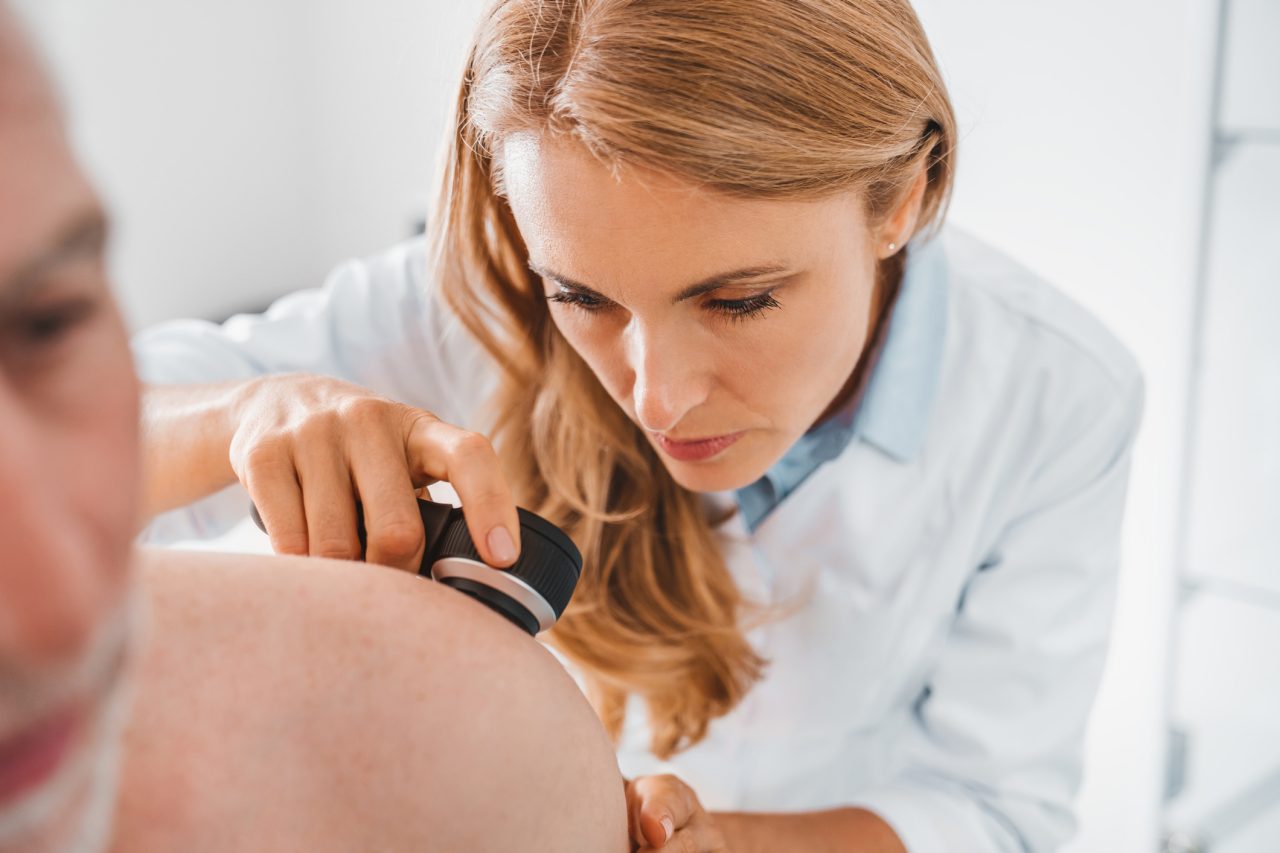Login
Cancer Screenings and Prevention
Skin Cancer Prevention
Skin cancer is preventable. Learn how.
Warning Signs
The most important warning sign of melanoma is a new spot on the skin or a spot that changes in size, shape or color. Remember the ABCDE rule:
- Asymmetry: one half of the mole or birthmark does not match the other.
- Border: edges are irregular, ragged, notched or blurred.
- Color: color is not the same all over; may include different shades of brown or black sometimes with patches of pink, red, white or blue.
- Diameter: spot larger than 6 millimeters (about ¼ inch)
- Evolving: mole changes in size, shape or color.
Concerned About a Spot?
Early detection is crucial for successful skin cancer treatment. If you notice a new or changing mole, freckle, or unusual growth on your skin, don’t hesitate to schedule an appointment with a ChristianaCare skin cancer specialist. Our team of experienced skin cancer physicians offers comprehensive diagnosis and a wide range of skin cancer treatment options to ensure the best possible outcome.
To learn more, call 302-733-HOPE or visit:
Click here to find a skin cancer doctor or call us at 1-800-693-CARE.
Lower Your Skin Cancer Risk
Screening for Life and Health Care Connection
Don’t let lack of insurance or copays keep you from getting screened!
Screening for Life and the Health Care Connection provide payment for cancer screening tests recommended by your doctor if you meet age, income and insurance guidelines. These programs are a cooperative effort of the Delaware Division of Public Health and the U.S. Centers for Disease Control and Prevention (CDC). The Health Care Connection simplifies the eligibility screening process to help uninsured Delawareans access primary care and medical specialists, disease prevention services (such as skin cancer screenings); and it helps ensure access to prescription programs, laboratory services and radiology services.

To learn more, call 302-733-HOPE or visit Screening For Life or the Health Care Connection & Voluntary Initiative Program.
Related Content
Contact Us
Helen F. Graham Cancer Center & Research Institute
4701 Ogletown-Stanton Road
Newark, DE 19713


